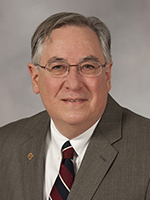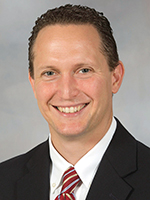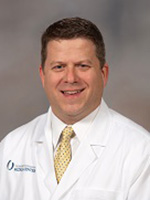Life during COVID-19: It's your story to tell

Can you tell the COVID-19 story of your life in 55 words or less?
The University of Mississippi Medical Center’s Office of Well-being, in collaboration with the Center for Bioethics and Medical Humanities, is joining institutions such as Emory and the University of Washington Medical School to offer the Medical Center family the chance to share its COVID-19 experiences and reflections.
It’s an emotional and stressful time, and members of medical communities like UMMC often neglect their own well-being because they’re focused on the needs of others. Sharing our UMMC COVID-19 Stories allows us reconnect with our colleagues and friends and to process something about this pandemic and the way it’s transformed our lives. It allows us to chronicle our fears, challenges, triumphs and tragedies.
You can identify yourself, or be anonymous. With your permission, your story will be posted on the UMMC COVID-19 Stories page.

“The opportunity for folks on the front lines, and for those supporting them, to express themselves is really important for two reasons,” said Dr. Ralph Didlake, associate vice chancellor for academic affairs and director of the Center for Bioethics and Medical Humanities.
“The first is as a release of emotion, stress and the moral residue left by working in this highly charged environment. The second reason is that future historians will need a record by which to analyze and tell the COVID-19 story to those who come after us.”
Here’s some guidelines:
- Focus on something that keeps popping into your mind. It could be a patient story, a cancelled event, a moment with a colleague.
- Write it down. It’s OK to lace it with fact, fantasy or supposition. Ditto for pouring out heartfelt emotions.
- Cut it to 55 words. Take away what’s not that interesting or necessary. Make one word do for two.
Resist the urge to name names or give a little too much information.

“This has been a difficult time, and many of us haven’t had a chance to stop and check in with ourselves about what has been happening around us,” said Dr. Joshua Mann, chair of the Department of Preventive Medicine and director of the Office of Well-being. “Taking a moment to shift gears and tell stories reminds us of our connectedness to the world around us.”
The Center, with your permission, will identify ways to share stories. Everyone is invited to take part by contributing a short reflection here.
Dr. Richard Wardrop, professor and vice chair for education and faculty development in the Department of Medicine, offered a reflection found on the UMMC COVID-19 Stories page.

“This is yet another wonderful example and opportunity for all of us at UMMC to put a grain of sand into the great beach of human experience through sharing our narratives, impressions and stories,” he said “It only took a few moments to start the writing and revising my narrative, and I immediately felt a sense of relief and gratitude as a result of sharing.”
“I want all voices to be part of telling that story,” Didlake said. “This project will help make that possible.”


